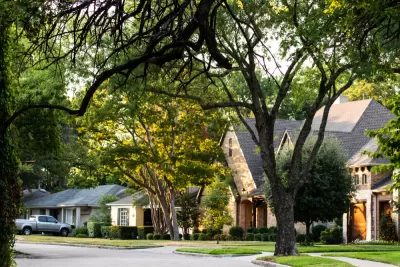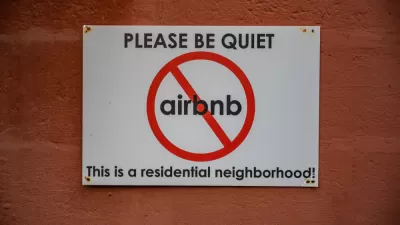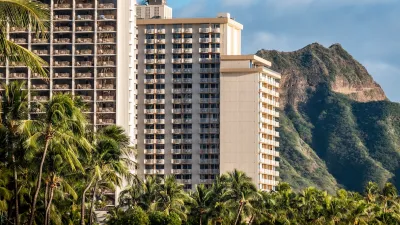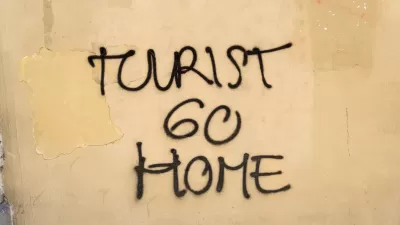The Dallas city council is evaluating three proposals that would impose new regulations on short-term rentals in the city’s residential neighborhoods.

Dallas residents are asking the city to introduce stricter regulations on short-term rentals (STRs), reports Bethany Erickson in D Magazine, prompting the city council to ask staff for recommendations. “City staff outlined two options. One would update zoning to divide short-term rentals into owner-occupied single-family homes. The other would be the opposite of that. Owner-occupied STRs (in other words, granny flats, ADUs, and garage apartments) would be allowed in all zoning districts. But those not occupied by the owner would be banned in areas zoned single-family residential.”
The proposed rules would also require off-street parking and ban the use of properties as event venues. A third proposal would ban short-term rentals altogether in single-family residential neighborhoods.
“Compounding the problem is the fact that nobody really knows how many hosts there are in the city. AirDNA, which analyzes listings and breaks them down by city and state, says there are 4,884 active listings within the city of Dallas.” Meanwhile, “The city says it has around 1,200 registered short-term rental property owners, which prompted most of the council horseshoe to question how effective any ordinance will be if the city can’t even enforce its baseline registration requirement, which is literally the only current regulation.”
The source article outlines regulations imposed by other cities, such as South Padre Island, where rules are aimed at controlling large parties, and Denver, where short-term rentals in residential neighborhoods are restricted to owner-occupied units. Erickson suggests a “good-faith effort at regulation” that enforces rules without completely shutting down the STR industry.
FULL STORY: After Years Without Regulation, Dallas Asks What It Can Do About Short-Term Rentals Near You

Planetizen Federal Action Tracker
A weekly monitor of how Trump’s orders and actions are impacting planners and planning in America.

Congressman Proposes Bill to Rename DC Metro “Trump Train”
The Make Autorail Great Again Act would withhold federal funding to the system until the Washington Metropolitan Area Transit Authority (WMATA), rebrands as the Washington Metropolitan Authority for Greater Access (WMAGA).

The Simple Legislative Tool Transforming Vacant Downtowns
In California, Michigan and Georgia, an easy win is bringing dollars — and delight — back to city centers.

The States Losing Rural Delivery Rooms at an Alarming Pace
In some states, as few as 9% of rural hospitals still deliver babies. As a result, rising pre-term births, no adequate pre-term care and "harrowing" close calls are a growing reality.

The Small South Asian Republic Going all in on EVs
Thanks to one simple policy change less than five years ago, 65% of new cars in this Himalayan country are now electric.

DC Backpedals on Bike Lane Protection, Swaps Barriers for Paint
Citing aesthetic concerns, the city is removing the concrete barriers and flexposts that once separated Arizona Avenue cyclists from motor vehicles.
Urban Design for Planners 1: Software Tools
This six-course series explores essential urban design concepts using open source software and equips planners with the tools they need to participate fully in the urban design process.
Planning for Universal Design
Learn the tools for implementing Universal Design in planning regulations.
Smith Gee Studio
City of Charlotte
City of Camden Redevelopment Agency
City of Astoria
Transportation Research & Education Center (TREC) at Portland State University
US High Speed Rail Association
City of Camden Redevelopment Agency
Municipality of Princeton (NJ)





























